Episode 29: Sarah Withee

Podcast: Play in new window | Download
Subscribe: RSS
Introducing Sarah Withee
Sarah is a polyglot software engineer, public speaker, teacher and mentor, and hardware and robot tinkerer from the Midwest.
Show Notes
Website | sarahwithee.com
Twitter | @geekygirlSarah
Episode Transcript
Liam: This is Hallway Chats, where we talk with some of the unique people in and around WordPress.
Tara: Together, we meet and chat with folks you may not know about in our community.
Liam: With our guests, we’ll explore stories of living – and of making a living with WordPress.
Tara: And now the conversation begins. This is episode 29.
Tara: Welcome to Hallway Chats. I’m Tara Claeys.
Liam: And I’m Liam Dempsey. Today, we’re joined by Sarah Withee. Sarah is a polyglot software engineer, a public speaker, a teacher, and a mentor. She’s a hardware and robot tinkerer from the mid-west. She has always loved programming and technology for as long as she can remember. She lives up to her Twitter username. Hey, Sarah.
Sarah: Hi, how are you guys?
Tara: Hey Sarah, we’re great. It’s great to have you on the show, welcome. Would you just take a few minutes to tell us a little bit more about yourself and, of course, now we’re really curious to share what is your Twitter username?
Sarah: My Twitter username is @geekygirlSarah, there’s been some times when I guess some people have doubted this and once they find out, they follow me and I’m about as geeky as I sound. They’re a little surprised sometimes. I’ve been a software developer professionally for several years but when I was a little kid, I started to learn how to program on my Commodore 64 which I think dates me a little bit. But I just found it fascinating, I could type in these little commands and the thing would just do whatever I told it to, and I could build up bigger and bigger things, and do fancier stuff. It just always fascinated me. Little baby nerd me was like, “I want to do this when I grow up. I want to be a computer programmer.” I figured out in college that most people don’t actually know what they want to do. They get little ideas as kid and don’t ever follow through with being a firefighter or an astronaut or whatever. I guess I was kind of lucky in that sense. But I still love it, it still fascinates me every day. I just have always loved programming.
Tara: Wow. So you started back a few years ago and you’re following your dream but I imagine that what your job or what you do in tails of technology is very different from what you would have imagined with that Commodore 64. How have you grown and evolved with the amazing changes that have happened in programming and technology and geek stuff?
Sarah: Good question. Back then, obviously, computers were kind of a novelty to have in your home. I remember we had a computer lab in our school with 30 computers and that was it. Now there’s just computers everywhere. I have several on my desk in the form of cellphones and tablets and everything. It’s still cool that when I was young, these fascinated me because it’s magical little boxes that did things. Nowadays, we kind of have bigger and faster and better things that can go way above and beyond what we ever could have imagined, but it’s still fascinating that somewhere some computer can listen to me talk and figure out what I’m saying, and all these other different cool things we can do with technology. I guess just as I’ve learned more and computers have evolved more, there continues to be this sort of road that you keep wanting to go down and just learn more and more of all the things.
I am with a medical research institute at the moment and we have different science labs and we’re working on some of the lab management software that they have there. But I’ve done some assorted side work, too, either for fun or for pay.
Tara: Cool. What kind of education did you pursue? Are you a computer science person?
Sarah: Yeah, I did go for the computer science degree at the university but before that, I took some programming classes in high school, too, and read a few different programming books to kind of pick up other languages on the way.
Tara: Impressive. What’s it like being, I’ll ask this possibly loaded question, being a woman in tech? Because there’s a lot of talk these days about women in technology and it sounds like you’ve been in it for a really long time so you’ve probably seen an evolution there. Can you talk a little bit about that?
Sarah: Yeah. It is kind of interesting. I think a lot of people know there’s like a few women in tech but they don’t really know exactly how many, and stats typically say somewhere between 10 and 20% given the location or the company or things like that. Definitely, a pretty slim number compared to the men. I have definitely been in classes where I’ve been anywhere from the only person to maybe five in my programming class. And even with the ‘larger numbers’, often they dropped out or they just struggled and not done too well. There’s been times where I’ve had a bunch of women in the class and I’ve ended up being the only one in the end. I also know different activities I did well at school usually didn’t have a lot of women. It’s been kind of interesting in that in some ways I feel kind of alone but in some ways kind of in the more approved, really, I know what I’m doing, I can program. No, really, I can. Sometimes, I’ve just been pulled in and it’s been kind of an interesting turn from when I first went to university, I felt like this kind of loner, didn’t exactly know. It felt really out of place towards the end when almost everybody wanted to be my lab partner. They were constantly asking me questions and wanting tutoring from me. It’s kind of an interesting change but definitely my confidence had to grow to get to that point as well.
Tara: For sure. What is your primary type of programming or language that you’re working in these days? What do you prefer?
Sarah: These days mostly PHP and Javascript. In my little bio that Liam wrote, he mentioned that I’m a polyglot software developer. I do a variety of different languages, I’ve done SQL, C++, C#, Python, some other things in the past. I dabble with different things on the side and I’ve kind of switched around jobs that have given me different languages. But I know mostly PHP and Javascript.
Liam: Sarah, that’s really interesting. The different languages, I’m glad you brought up the polyglot because that was definitely something I wanted to get into with you. As you’ve grown or flown through and have been flowing through your career and learned languages and the like, has that been more of a desire to learn this language or that language? Or has it more been there’s a job opportunity or there’s a challenge, and they want me to use C++, and they want me to use C#, and they want me to use PHP, they want me to use Javascript? So you tackle these languages maybe at your own desire or more as, as life presents these challenges to you, you accept them and move from there? Maybe you could talk to us about that?
Sarah: Yeah. It’s kind of an interesting combination of both, I think. I learned BASIC on the Commodore, and once I got out of high school, in high school, it kind of changed to Individual BASIC. The first language I learned after that was C++ and that was for my college class. And a friend of mine was working on a website and he was like, “We have this ugly Perl script and kind of want to make it PHP. I had never done website stuff before. I had done HTML and CSS but not really anything dynamic. It kind of drew me in from that. I found a PHP and MYSQL book and just kind of read it and soaked it up like, “Wow, this is so cool. Websites now do whatever I want them to do.” That was kind of fun and that got me in there, and then when I went to college the first time, I guess I should say, the main language was Java and so I learned a bunch of Java really quickly. Let’s see, left that, ended up at a job where I did some ASP kind of stuff which was absolutely terrible. That was for a job. When I went back to school again, they did C++ and it had been several years, I felt like I relearned that in a way. But when I had some internships, those were in C++. That was kind of easy. Then there was Javascript which I had to learn for another job. C# which I had to learn for another job.
Liam: Let me ask you a language question, if I can, to interject here. Having been reasonably fluent in Spanish at one point, although I haven’t spoken it in a long, long, long time, I really began to consider myself fluent when I would have dreams in Spanish. That was kind of fun and interesting. And I wonder as you go from programming language to programming language to programming language if there is an equivalent of dreaming in that language or some kind of similar analogy in how you know you know that kind of thing? I wonder if you can speak to that?
Sarah: I would be lying if I did not say I haven’t had dreams where I coded sleeping. [laughter] How’s that for nerdy? Let’s see. I would say, as I’ve learned more languages, other ones have picked up a lot quicker, and I think you’ve found that from foreign languages. Once you learn one, it’s like, “Oh, this is weird.” But the second one’s like, “Hey, that’s kind of similar to the first one.” There’s definitely that with programming languages, at this point, it’s just kind of like, “I know all the concepts, how do I write it in that particular code syntax?” I guess fluency is kind of hard because most languages have kind of a core piece to them, but there’s other little add-on libraries and different things like that. I don’t know, I think it’s really hard to be fluent in more than one language in the sense of like, I can sit down and not have to look anything up ever. But in the terms of like, if you just said, “Hey, can you write me this function in six different languages?” It was pretty simple enough, I can probably sit down with you. I feel pretty familiar with all of these but sometimes there is a little bit of contact switching or I have to kind of change my brain to things like, “Oh, how did I do that in that language?”
Tara: That was a very techy question. I’m going to take us away from techy questions for a minute, although, I guess you could sort of couch this in some tech stuff. We talk about success a lot when we have guests on this show, we love to talk about what people’s ideas of success are. And I know writing code, success is a great feeling when you figure something out or you get something to work the way you want it to.
Liam: It works!
Tara: I’ve heard that happen. [laughs] That would be a very specific tech project-related success, and that may be how you define it. How do you define success in work or life in general?
Sarah. Good question. I think if you asked me ten years ago, I would have just hoped to get through school and get a job and that would have been it. And I think if you asked me five years ago, it might have been to just get through school and get a job and that job would be just interesting in some way. But what happened when I went back to school to finish my degree was I ended up in some programming competitions on the robotics team. And one of my teachers was like, “Hey, we have this competing conference, you should come to this.” And little all over the place, different kinds of doors opened and as I started going through them, I was like, “Hey, this is kind of fun.” But never would have imagined I would have done any of these things. I just never would have imagined I would have been on the robotics team and be able to say I’ve built robots and different things like that. I think success has kind of changed definitely over the years from just like, “I hope I can do something and get a job.” To, I’ve been successful and a lot of different cool things have happened in my life. I was kind of thinking on this recently that I think success now has sort of evolved to, am I able to take the things I’ve been involved in now and kind of bump it up a level, and then still manage to get there? I’ve started doing some conference speaking and my next level would be like, “Hey, what would happen if instead of me asking to speak at your conference, what if somebody was like, hey, I want you to speak at my conference?” And that happened this year. I got invited to go speak somewhere next year and that’s kind of cool. I feel like I’ve hit a level of success there where that’s happened. And then part of me is like, “Well, now that that’s happened, what’s the next thing?” What if this is like a huge 1000-person conference or I don’t know? Just another step past that. I guess for job things, it would be like I have different kinds of interests. What would it be like if I got a job doing machine learning, hypothetically? And then, can I get myself to that point and learn some more cool stuff? I think I’ve gotten to a point where different successful things have started happening that I couldn’t really have ever predicted. Part of me is just like, how about if I just take all these things and say, “Wow, this is successful, what would happen if I took it another step further?”
Tara: Considering that this is something that you wanted to do since you were a kid, though, I would think you could have predicted it maybe. [laughs] Or it’s pretty cool that you’re living out what you imagined yourself doing. Maybe not specifically in terms of speaking, being invited to speak, and stair stepping up the way you’re describing, but it’s really cool that you’re following that path that you started out loving when you were younger.
Liam: Sarah, when Tara and I were at a conference recently, we’re talking about our own definitions of success and the evolution of our definitions over time. And it sounds like yours is an evolving one. That’s really interesting, and I suppose in some ways, it’s not surprising. As we get more experience and we mature, change, get better or worse, depending on our lives are going, our views will vary over time. And with that in mind, with your current definition of aiming higher, if I can sum it up in a single phrase, looking back on the success you’ve achieved from the hard work and the opportunities that you’ve taken, what would be the single most important thing you’d do to achieve that success of getting to those next milestones, those next targets?
Sarah: Good question.
Liam: And I’ll keep phrasing the question a couple of different ways to give you a few more seconds to think. How does that sound?
Sarah. Sounds good.
Liam: And really it can be something work-focused or life-focused, or meditative, whatever you’re doing to keep yourself moving forward.
Sarah: One of the things I feel like I’ve been struggling with lately is sometimes feeling like I’m just stuck. There’s this hurdle I have to get over. And the hurdle’s kind of hard but I feel like once I get started past that, I’m over the hump and it’s really easy to kind of go downhill. In some ways, while I feel really passionate about, as I mentioned earlier, kind of wanting to learn all the things all the time. It’s sometimes hard to just find a way to sit myself down and say, “I need this, stop other things and learn it.” Not even need to but just want to stop and learn different things. I know right now I feel like I have a lot of adult things I need to do, different responsibilities and so it’s bee kind of hard to say. I really wanted to learn more about Cloud stuff, I really want to learn more about MongoDB, I really want to learn more about different things I started and not finished. I think one of my biggest struggles to my success is figuring out how do I convince myself that this little hill that just looks daunting and I’m like, “Well, I have so many other things down here in this little valley I need to do or want to do.” And just say, “No, this can wait a moment. Maybe I need to really make the [inaudible 19:58]. The times I do it, I know it’s rewarding and beneficial to me but I think it’s kind of struggle to my own success. Just how do I get going off that little hurdle.
Tara: What would you say is your favorite thing to do?
Sarah: My favorite thing to do? Anything. I’m terrible at superlative questions.
Tara: You can name a couple.
Liam: What are some but not necessarily all or the most of your favorite things to do? What do you do when you’re not learning programming?
Sarah: Kind of a surprise to myself, at the beginning of last year, I told myself I wanted to try and do something absolutely non-technical because I’m so used to being a sort of super geek on everything. I was thinking maybe I’d take an art class or learn painting, drawing, maybe do pottery. I don’t know. What kind of ended up happening through series of different events was I ended up in a women’s chorus and it’s kind of interesting because I absolutely hated to sin and I really don’t like the sound of my voice, which is also kind of funny because I started a podcast and I have to listen to my voice constantly. But yeah, I kind of went into this and I thought I sounded absolutely terrible. And I recorded me singing a song and sent it to a couple of friends and I’m like, “How absolutely horrible am I?” And a couple of minutes later, they’re like, “You’re not. You’re on key. You actually kind of have a nice-sounding voice.” I thought that’s weird. I never would have imagined this. Like I said, through a different series of events, I came to see the women’s chorus. I found that when they were getting ready to start their new concert tease and I auditioned and didn’t make it in. I just flopped the audition. And the director even said, “I can tell you have some talent, you just have no confidence and I can’t see in this audition that you have the skills to do it.” I kind of end up working with myself and trying to build up some confidence in singing a little bit more clearly and loudly and stuff like that. And I made it in the next time and so I’ve sung two concerts with this big group of like 100 women and it’s been absolutely kind of amazing in a way I never would have imagined.
Liam: Yeah, that’s a really interesting story and that constructive feedback from the chorus director that you have talent but you didn’t bring your A-game today and so I can’t judge your talent and I’m not willing to risk the entire performance or season on what you might be able to do. Can you tell us a little bit about that you then went on to come back and audition again, and make it? It speaks a lot about your ability to deal with fairly your take on board constructive feedback. And I would imagine it’s contributed a lot to you success over the years and getting onto that robotics team and learning all those different languages. What’s a good practice or a habit for you, whether it’s mental or psychological or emotional, to deal with that failure, particularly when you’ve got some kind of piece of constructive feedback where you can see that there is a way forward and you just have to figure out a way to make that happen if you want it to?
Sarah: I think in kind of the same way I got lucky as a kid and knew what I wanted to be when I grew up. I kind of got lucky in that from the early age when I started learning programming, stuff fails all the time. You rarely write code that works the first time, and if I do, I’m usually concerned with what I did wrong that I haven’t [inaudible 24:08] yet. I think from that standpoint, I’m used to the idea of sometimes I just kind of do things and they don’t work. In terms of being able to say, “Hey, here’s my code, I’m missing something clearly. It’s not working, I can’t figure out why.” And getting somebody’s feedback on it that makes a lot of sense. It’s constructive, it’s not really a thing against me personally. It’s just kind of like something’s up. And I think with other constructive feedback, I really try to take it at kind of a logical surface level, like you’re just commenting on this. It could be better if you do that. And the times when the feedback is not constructive is kind of when it hurts a lot more. I gave my very first conference, it was really popular so I kind of though the next one after that like, “This could be really good or it could be really terrible.” And the first time I gave a talk after that, I got a lot of feedback from the conference and it was like, “Well, I could have learned more from a Google Search, that was a terrible waste of 45 minutes.” And these aren’t constructive because why was it bad? Why did you not learn anything? Why things like that? It’s come to a point where I’ve had to take, sort of evaluate things from, if they’re not helpful to me, I almost have to ignore them, and that’s a lot, obviously, easier said than done because I think I cried after I heard. But I think that’s kind of what keeps me going forward is when i can find those really good people that are just like, “Here’s good feedback and really descriptive ways that aren’t more about, well, you’re a terrible programmer. But more like, hey, if you did this, it would work better, if you did that, you’d have faster outcome or it wouldn’t keep crashing your whatever.”
Tara: I’m curious what that first talk was that you said was so well received. What was it about?
Sarah: It was called Intro to Hacking with Raspberry Pi and it was about– I gave it in 2015 and this is, I think, a little bit of lack on my part in that Raspberry Pi was finally around enough that it was a really common name, people have bought them and like, “Wow, it’s a $35 computer. How cool is that?” But then it kind of just at around like, “Well, I don’t know what to do with this thing.” And one of the first questions–
Liam: That was my experience. Oh, I got this. Okay, now what? [laughter] Keep talking, sorry.
Sarah: Exactly. It’s alright. I could have asked in the beginning like, “How many of you own one?” And almost half the hands go up, and I’m like, “How many of you have it sitting in your closet or your junk drawer or whatever?” Almost the same number of hands go up. So I took some of my robotics knowledge and said, “Okay, here’s an idea. How about I teach you some different projects you can create with it? Maybe you can put some LEDs on it, make it blink and do different things.” A friend of mine put one on the scratch door opener so he could text the code and it would open his garage door.” I’ve seen different ones. Some guy made a cookie making machine where he hooked it up to a bunch of different doodads. Put them in a recipe and it bakes one cookie of a different type so you could see if the brown sugar versus white sugar worked better or more flour, less flour.
Liam: I’m going to need to youtube that, yeah.
Sarah: And it was definitely kind of cool. What I did was kind of talked a little bit about, okay, everyone’s really daunted by the hardware idea and it’s really a lot simpler. Because when I went into robotics, there was some really complicated stuff, but the basics are basic. They’re not really that hard, and plus, programming hardware is not nearly as difficult as I think people think it is. I kind of wanted to show a brief overview of, here’s how to make some simple projects, we can really quickly program them and within a matter of a few minutes, you can have some cool little projects. And hopefully, this will inspire you to maybe do something in your house or whatever. Like a tweeting cat door or something.
Tara: Speaking of cool projects, we do talk about WordPress a lot on this show and I know you’re not a WordPress specific developer but I just wanted to give you an opportunity to talk briefly about your relationship to WordPress. Your familiarity with it certainly maybe isn’t as cool as Raspberry Pi but it is pretty cool, we think. So tell us a little bit about your WordPress relationship?
Sarah: I definitely do think it’s pretty cool in a way. I’ve used WordPress for a lot of different sites, kind of in the beginning. I think the trend years and years ago was everybody should make their own website and I finally got to a point where it was just kind of tiring for me to make yet another website for somebody. So I started looking into different ways to have premade site template management thingies, and kind of saw WordPress, like, “Hey, let’s try this.” And it kind of became one of my favorite ones because it’s pretty simpler to set up and super customizable, and I think easy for other people to use. I definitely abused it for, I don’t even know how many years now, probably at least 10. And I use it on all of my personal websites, as well as other websites I’ve helped design for different people. And probably the biggest project I’ve worked with it is a friend of mine owns a local magazine and he had well over like 2000 different articles, from 2004 until present. And his website was one of those custom-made things from some guy’s basement and it was just kind of this atrocious mess after a while. He kept having to call me, this thing kept breaking again. I predicted it was some other guy’s atrocious code. And so I decided, “You know what? Maybe it’s time we move this to something modern.” And kind of had to write some interesting import scripts to get his 2000 something articles and all those pictures and all those authors and everything in. But once I finally got it, it looks great and there’s still a couple of little quirks I’ve been trying to work out, but I really like just how open and easy WordPress has been to use. In terms of community stuff, I haven’t been too involved. I’ve started trying to go to a couple of WordPress meetups in town and I’m on a Slack group with different women in the WordPress community. That’s been kind of fun to chat with them a bit. And then I know a couple of people that actually work at Automatic and I’m friends with them. It’s been kind of a cool little thing I’d love to be more involved too and connect, learn more what’s going on.
Liam: Well, you’d be most welcome to get more involved with the community, regardless of how often or day to day you use it. Again, having just come from WordCamp US recently, I can tell you that there are people who have used it since it was started and there were those that were thinking about getting into it and they’ve never been to anything before. You are hugely welcome to join and get involved and attend local meetups. And there are some good people out in Kansas City from a local standpoint. I invite you as and where you’d like to dive in on that. Let me change gears and ask you one of our more signature questions, if I can, Sarah. What is the single most valuable piece of advice, be it personal or professional or maybe a mix of both, that you’ve ever received and implemented in your life?
Sarah: Oh gosh.
Liam: And it can be an amalgam of advice if that makes it a little bit easier for you.
Sarah: I know I’ve read through the questions but this is one of those I don’t know if I ever came up with a good answer.
Tara: Okay.
Sarah: You can turn your timer off.
Tara: Okay, eat your veggies maybe? [laughter]
Sarah: I had an advisor at the second university I went to. And, actually, when I joined the robotics team, there was a guy on there and he really wasn’t letting me kind of get involved. He was like, “Oh, the code’s already written.” I’m like, “It can’t be written, we’re building new robots.” And I’m like, “Can I even look at the old code?” And he wouldn’t let me. And finally, I just kept going to the adviser and like, “I’m not wanted here, I clearly don’t belong.” And she was kind of like, “No, no. Stay with it. At some point, they will need you.” And like, whatever, I’d go for another weeks and it would be a terrible mess. And I’d go back to her and I’m like, “No, seriously. I probably should go at this point. She’s like, “No, no. Keep going, it will get better.” I’m like, “Whatever.” I don’t know, two, two and a half months in, they were having like a Saturday work day and I was there and didn’t know what to do so I was just kind of sitting around. One of the guys hands me this motor and he was like, “Can you make this work?” I was like, “I don’t know.” And he ended up handing me a motor controller, which I didn’t know what that was at the time. And she was like, “Oh, you probably need an Arduino or something, here’s an Arduino.” And just handing me all these things, I’m like, “[inaudible 42:43] I’m doing.” I kind of sat down with Arduino book I found and kind of some internet resources and just started trying to look up what these parts where and what they did and how do I make this motor turn. About two hours later, I got it to finally hit a button on the keyboard and the letter returned. And little tinkering, a couple of minutes later, hit a button and letter would get the other way. This, in turn, ended up kind of developing into, “What happens if I take four motors and put them on a base?” And now this thing can drive around, and the guy that was being the obnoxious snot ended up moving away and I kind of ended up having to take over the whole programming of everything. And I still didn’t really know what I was doing. But it was kind of interesting that I don’t think she predicted that all of this would happen but it’s just kind of interesting that sometimes maybe it’s just sticking with it, even if you don’t see potential hope for future can sometimes turn out to have interesting results.
Liam: Yeah, that persistence is really valuable, especially in the face of what looked to be some pretty severe adversity at the very least, challenging situation. But do you feel like the group organizer, the advisor was encouraging you to go and stay involved because she was being supportive or more just because like, “Don’t rock the boat, just stay there”?
Sarah: I think she was probably trying to be supportive, I know she has been with the robotics team, I think, since its beginning, eight years ago at the time. And she had probably just seen enough people come and go and different things kind of change and evolve that she was probably like, “Well, I think if you stay, something good will happen.” I think she’s trying to be supportive and encouraging.
Liam: That’s great. That really does circle back nicely to your definition of success of achieving things and taking advantage of opportunities and building on constructive feedback. Thank you very much for sharing that story with us, Sarah. It brings us to what is well past our standard time. So we’ll have to wrap this up even though it would be wonderful to keep chatting. Before we let you go, Sarah, would you share with us where people can find you online, please?
Sarah: Yeah. you can find me, my biggest social media is Twitter, It’s @geekygirlsarah and I usually kind of live on Twitter. You can find me there. I started using Facebook again so I’m also on there. LinkedIn, just look for Sarah Withee and I’m the software developer, not the college professor in Colorado.
Tara: Great. I’m really glad you were able to join us and super impressed with all that you’re doing with technology and code. Keep up the great work and having fun with it.
Sarah: Thank you for having me on.
Tara: Thanks, Sarah.
Liam: It’s been a pleasure, Sarah. Thanks for being on the show, we’ll see you soon.
Sarah: Thanks, bye.
Tara: Bye.
Liam: Bye, bye.
Tara: If you like what we’re doing here – meeting new people in our WordPress community – we invite you to tell others about it. We’re on iTunes and at hallwaychats-staging.ulpgsyz6-liquidwebsites.com.
Liam: Better yet, ask your WordPress friends and colleagues to join us on the show. Encourage them to complete the “Be on the show” form on our site, to tell us about themselves.
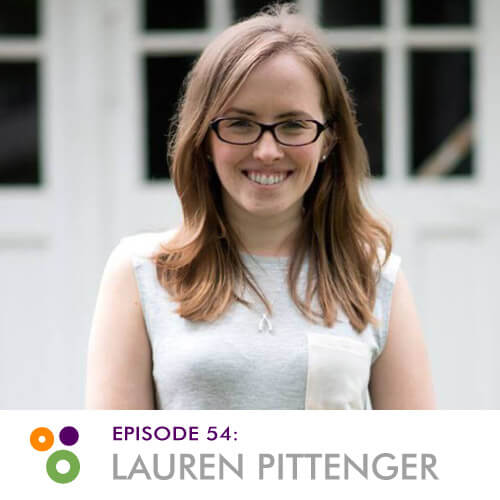
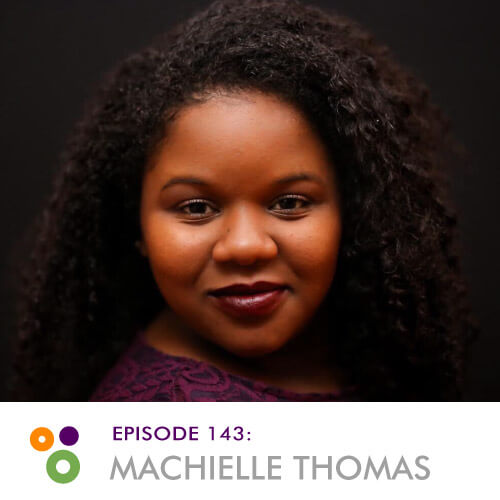
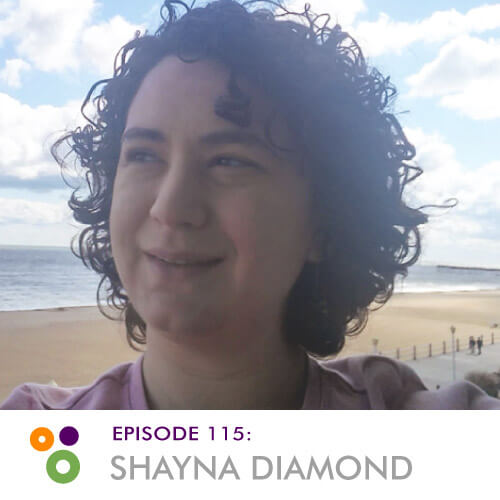
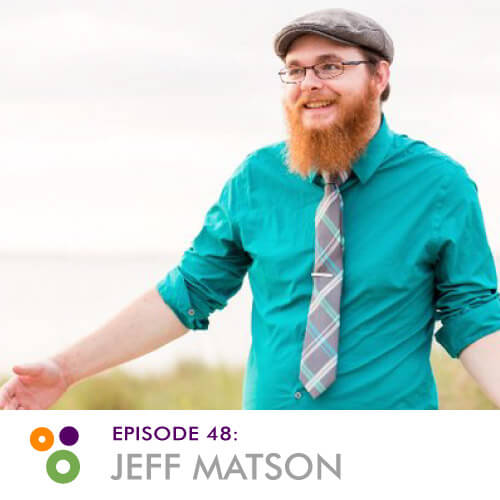
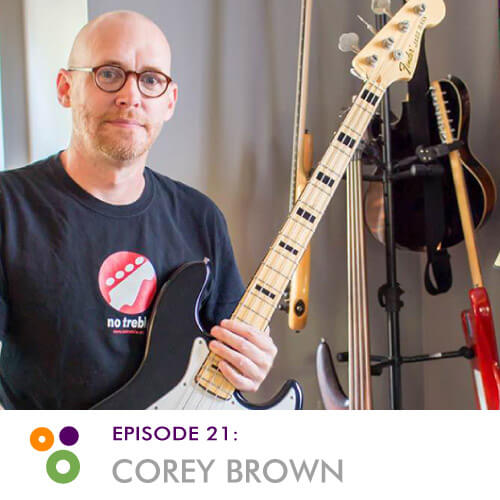
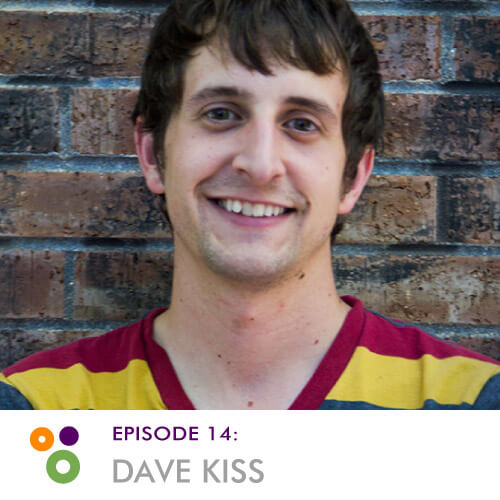
One Comment